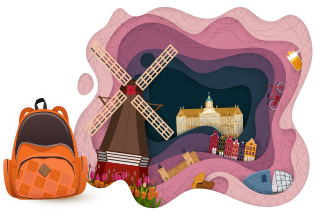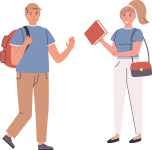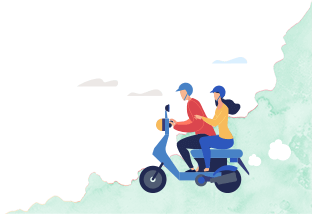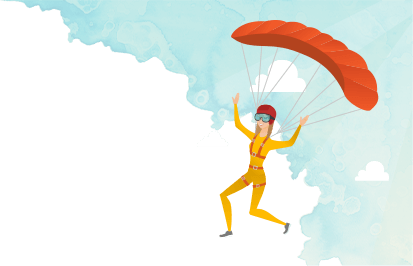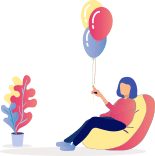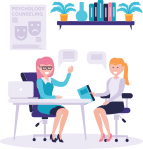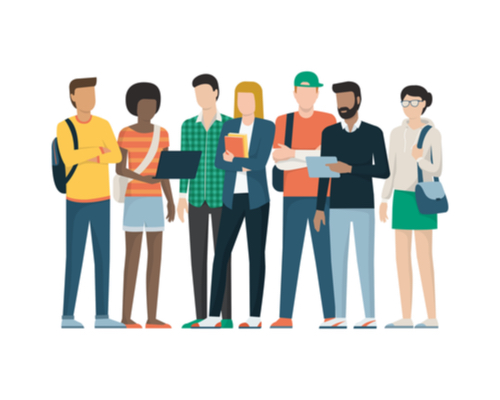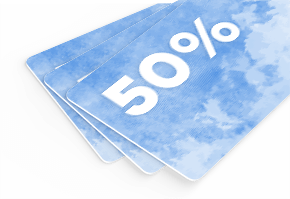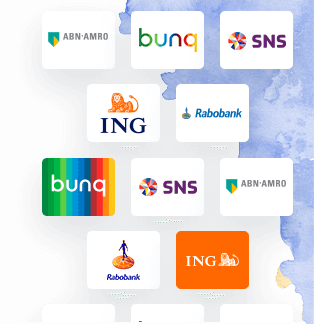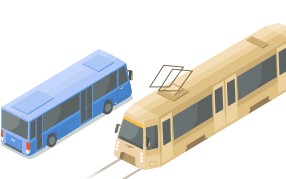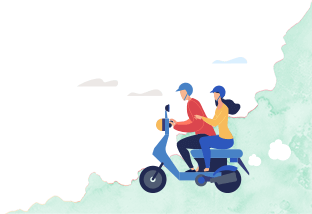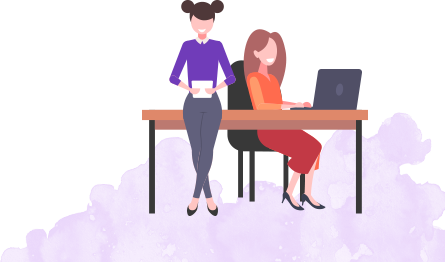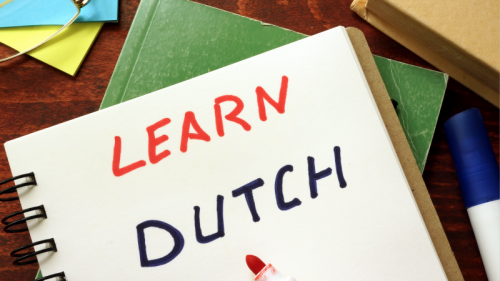
Understand how you best learn
Many of us at Student-Helpr have been there: being told they must read a plethora of pages to understand the class and its lessons. Something which wasn’t taught to many of us is not what to learn but how to learn. The brain works differently from person to person, it is like how people often have different approaches towards the same task. It may not be incorrect how person ‘A' performs the task compared with person ‘B’, just different. There are eight types of learning, but we will focus on only four types of learning: visual, auditory, kinaesthetic and reading/writing learners.
The visual is as it sounds, you learn best by seeing. You remember better when a lesson employs pictures and diagrams as teaching aids. You probably are not one who enjoys slides with too many words.
Auditory learners are those who learn better by listening as opposed to focussing on taking notes. You are the kind of student who probably records and listens to a lecture or prefers to search for relevant videos online instead of reading chapters in a textbook.
The kinaesthetic learner has the learn by doing approach. You prefer to do it yourself instead of being shown how to do it, you would rather have someone guide you through the process instead of watching someone do everything.
The reading/writing learners are those who learn best by reading and researching. If you fall into this category, you probably have no issue with sticking to your textbook or writing your own summaries and notes.
Which one are you? It is interesting, to know this about yourself, especially if you are more than one of them.
Resources
We live in an age where information is abundant and easily accessible. So why not use it? Youtube, library resources, Westlaw (for those legal students), whatever you are studying there is certainly an alternative source of information you can access often for free. However, you must be aware of sources of information which may be incorrect, partially correct or misleading. But while being aware of this, you practice validating your resource, checking when it was published, potential bias and validating its content. While being critical during this process you are not only practising how to think critically but you also test your understanding of a subject.
Recommendations for during the exam
The sections above all focus on what you can do to prepare for exams, before, during and after classes. But now you are about to leave for the exam. First, know where your exam is, don’t be afraid to walk to the classroom before the exam to anticipate any unforeseen events, ie construction in the building and check you are properly registered for the exam. Second, we recommend you check you have the critical ingredients to make the exam: passport, student card, pens, highlighters, books (if relevant), snacks/coffee (if you need a boost) and dictionary (even as a native English speaker, a dictionary has been helpful to clear any doubt from the incorrect and unnecessary use of the English language in the exam questions).
Got these? Good.
Next, you arrive before the exam starts. Why go through all that preparation and effort to put pants on and leave the house to find out the tram which would have gotten you to the exam five minutes before the exam is late or cancelled? Why put all that unnecessary stress onto yourself? Arrive early, especially if you do not know where the exam is or if you have to check in your bag and jacket to another room and have to register before you can find a table for the exam.
Seated? Good. …. Or does your table move and does your chair squeak unnecessarily? Check that, not only will it drive you nuts, your neighbours may not be so appreciative.
So now you are seated. Some people are ‘zenning’ out, some are boasting about how prepared or nervous are. Just do you. We recommend you do the following; Line up your pens and highlighters (be organised); Have your passport/student card somewhere on your table if the monitors of the exam need to check them during the exam, you won’t be disturbed; and If you are allowed, fill in your details on the exam booklets.
Now the exam paper is on your desk, you turn it over. This is the time we want to remind you about your brain. It is muscle, muscles fatigue and the brain is extremely demanding for things like oxygen under times of stress. So, number one – don’t stress. Secondly, we recommend, that while your brain is fresh you write down all the important bits of information for this exam which you remember. As your brain strains through the exam, it will fatigue, and you will forget these case names (once again for those studying law).
Now you have written all you remember, read the exam, does anything sound familiar or reminded you of another piece of information? On the page, it goes. Once you have read the whole exam you know what you are tested on and you have a nifty reference sheet to plan your answers off. This process often takes less than 15 minutes and is worth it.
Recommendations for after the exam
So right about now, your wrist hurts. We know how that feels, but the sad truth is, it is not over until it is over. You have to wait for your grades but right now you probably have a great recollection of the course lessons. So before you dump all that information out of your head, we recommend you write a quick list about what was in the exam (it may not come up in the resit) and a list of topics you struggled with. We do not think of it as preparing to fail, but rather as an insurance policy if you did have to retake the exam.
If it is possible, we always recommend attending the exam review. This allows you the chance to understand the topic more, understand your lecturers and how they instruct and assess (this is useful if they going to be a lecturer in your next semester) and also allows you to prepare for future assessments.



